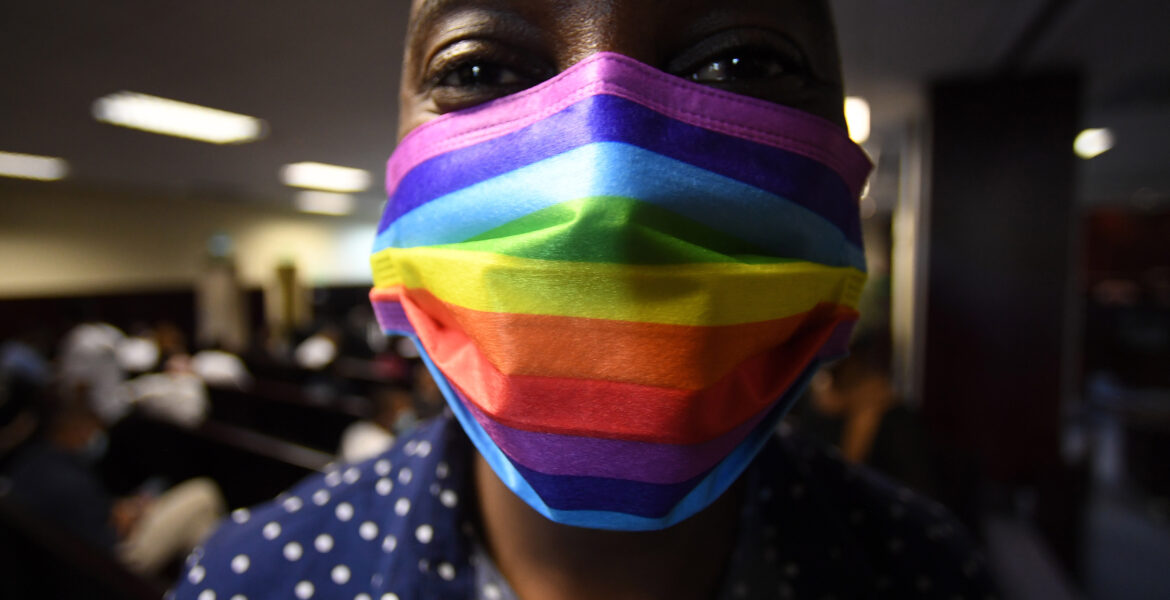- Gay people, like people who smoke dagga, are not vulnerable – Pilane
- What is the law doing in the privacy of people’s bedrooms? – Rantao
RORISANG MOGOJWE
The Court of Appeal has reserved judgement in a case in which the government is appealing a landmark High Court ruling that decriminalised homosexuality in Botswana.
In 2019, the High Court ruling overturned a colonial-era law that punished gay sex by up to seven years in prison, stating that it was unconstitutional. The case, which had attracted international attention, was seen as a landmark development for gay rights activists and one that put Botswana among a select group of African countries that upheld LGBTIQ rights.
In the appeal case this week, the state – represented by Advocate Sidney Pilane – argued that the matter ought to be taken to Parliament as it is responsible for laws and policies, and not courts of law which are now “tolerant”.
Said Pilane: “If I may be blunt about it, the courts are now tolerant. The courts are now the ones whom everybody runs to when they want the laws changed. They don’t go to Parliament, they don’t go to the politicians, they don’t go to the government, they run to the courts … in the hope that they might be listened to, and not necessarily will be listened to.”
Advocate Pilane stated that LGBTIQ+ persons do not require protection as they are not vulnerable. Asked which groups qualify to be protected, Pilane said disabled persons are a good example.
“The question is whether they are vulnerable,” he pressed on. “Are they vulnerable because the law prohibits what they do even in the privacy of their bedrooms? Are the people who smoke dagga vulnerable? Are the minority who want to take drugs in the privacy of their houses vulnerable? That is why the question of vulnerability itself must be debated. Who decides the position of vulnerability? Is it the courts? Is it Parliament? Is it not a matter of policy?”
He said the stigma that attaches to the LGBTIQ+ community comes with the territory but the law should not be changed to “suit those situations”.
“Changing the law might not change people’s attitudes towards them,” Pilane asserted. “My concern is, where do we stop? How do we define ‘vulnerable’ around the context? And when we change the law, let’s say these conditions are repealed. Will the stigma against gay people stop?”
Pilane urged the court not to assume that Batswana will accept and respect homosexuals based on a court order even though they respect the courts. Whereupon Justice Ian Kirby said Pilane’s statement here contradicted his earlier arguments.
On the other hand, the attorney representing LEGABIBO, Tshiamo Rantao, argued that members of the LGBTIQ+ community are entitled to protection of their constitutional rights and that criminalising homosexuality enables stigma against the community and negative attitudes towards gays.
“Even in their minority, they form part of the rich diversity of any nation and are fully entitled in Botswana, as in any other progressive state, to the constitutional protection of their dignity,” Rantao argued. To drive his point home, He quoted a certain jurist thus: “In so far as the question of privacy is concerned, the question is not what two adult consenting males do in their bedroom, but rather what the law is doing in their bedroom.”
Judgement was reserved and dates of the verdict will be communicated to the lawyers.
The state was represented by Advocate Sidney Pilane, LEGABIBO by Tshiamo Rantao while Rockfall Lekgowe represented Letsweletse Motshidiemang.

